In the fifth Democratic presidential debate in Atlanta, Georgia, debate moderators promised at the outset that they would talk about race and public policy. They absolutely failed to deliver. Despite several candidates mentioning issues related to race early in the debate, the MSNBC moderators waited until 90 minutes into a two-hour debate to ask the first question on race.
The debate was held in a majority minority city of half a million people, an event hosted at Tyler Perry Studios—the first ever fully Black-owned studio. Significant to the Black community, the setting was primed to host a party-wide conversation about a multitude of issues relevant to communities of color. Those issues include housing, jobs, education, entrepreneurship/access to capital, criminal justice reform, cannabis legalization and gun violence, as well as inequalities in pay, wealth, access to healthcare and healthcare outcomes—to name a few.
The debate moderators opted to ask one question of substance: What would candidates do about white supremacy in America? It’s a growing movement that threatens the safety of communities of color, for sure. The question was directed to Tulsi Gabbard and Andrew Yang. To their credit, they brought up a host of related issues. Ms. Gabbard, seemingly familiar with how rare the occasion is for the question to be raised in the Democratic debates, worked to pack criminal justice reform, the War on Drugs, prison reform, sentencing reform, and the cash bail system into her response. She was right to do it, as the opportunity was fleeting.
The next question supposedly related to race and public policy was asked of Kamala Harris, the only Black woman on stage, on why she criticized Pete Buttigieg for his approach to outreach to Black voters. Harris made the point—metaphoric in the context of moderators’ scant interest in race—that Democrats are notorious for reaching out to Black voters in advance of an election and ultimately failing to deliver. Rather than attacking Buttigieg, Sen. Harris used her precious time to discuss gun violence affecting young Black men and inequalities in health care that disproportionately hurt women of color.
Cory Booker came back to the issue of race after being asked an entirely unrelated question. He echoed Harris’s concerns about the party taking the Black community for granted and pivoted to attack Joe Biden’s position on cannabis legalization, noting the War on Drugs is a war on people of color.
One substantive question on racism in America in two hours of debate is inexplicable.
Thankfully, the candidates on stage took their own moments to steer the ship away from non-race related questions toward this issue, which a significant number of Democratic voters in the state of Georgia and across America care deeply about. Sens. Harris, Warren, and Booker brought it up in the first hour of the debate.
It’s true that many Democratic elected officials come calling for Black votes in an election year and fall short of delivering for the needs of those voters. Every Democratic presidential candidate on that stage should be ready to speak in great detail about what their plans are to rehabilitate communities that this country has ignored and left behind for more than two centuries. Issues affecting Black communities are complex, interconnected, and plentiful. What’s more, the issues important to Black voters and the problems communities of color face can be solved with policies that help every American prosper. Democratic debate participants are forced to shoehorn a discussion of race and policy whenever they have an opening. It often requires ignoring a question asked to give a preferred answer. Sometimes it requires a less-than-smooth pivot away from one point and toward one that address the issues of Black America.
Debate moderators left behind Black voters in their own backyard in Atlanta. I’ve spent time on this blog praising the work of several debate moderators this election season. Not tonight. The wounds of institutionalized racism in the United States have cascaded into a system of lost opportunities in communities of color. Tonight’s debate moderators helped show why those issues continue to go unaddressed.
The Brookings Institution is committed to quality, independence, and impact.
We are supported by a diverse array of funders. In line with our values and policies, each Brookings publication represents the sole views of its author(s).

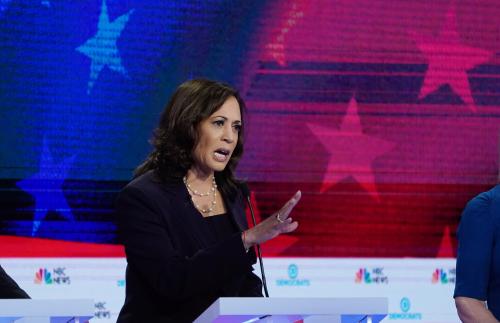
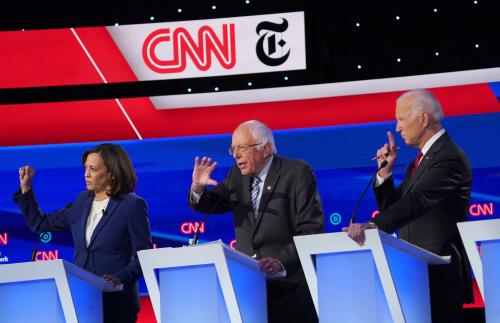
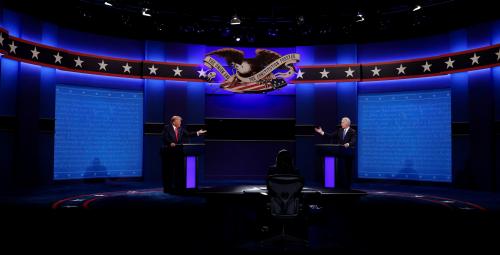
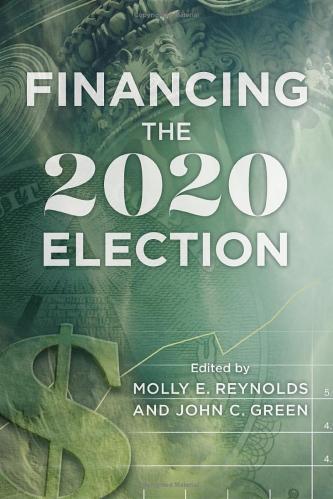
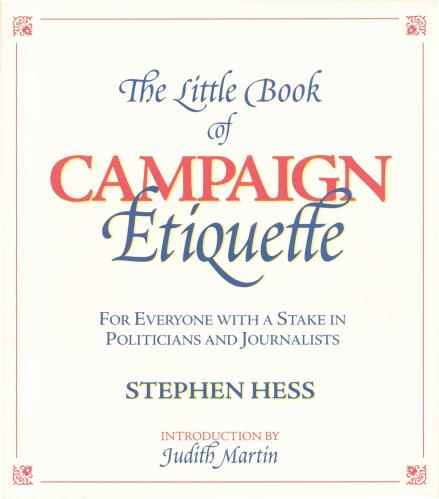





Commentary
MSNBC debate moderators largely ignored people of color
November 21, 2019